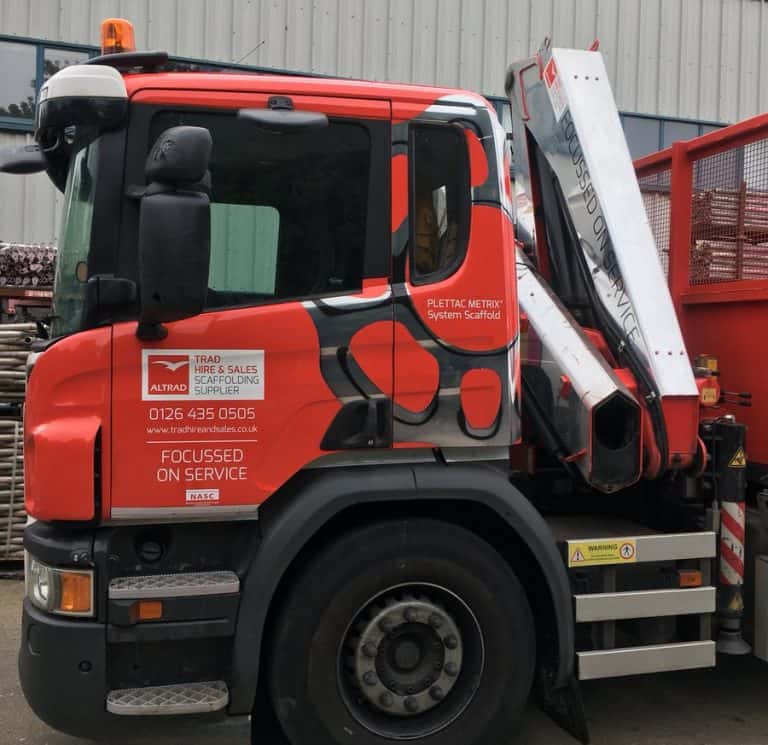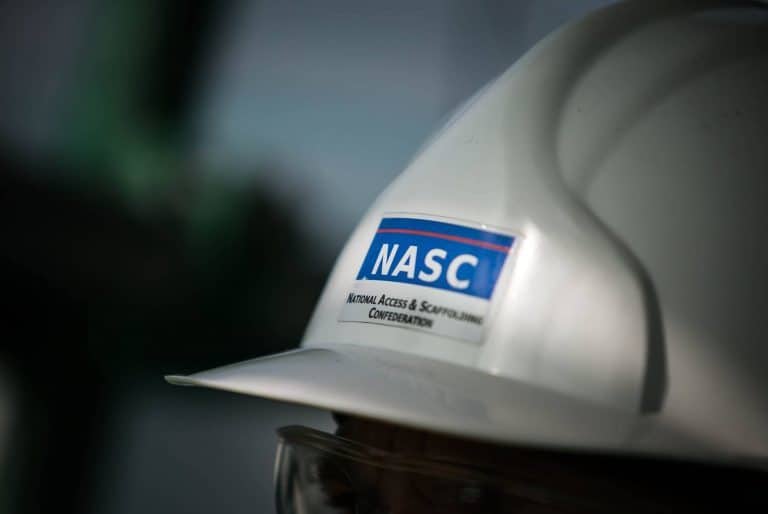CITB suspends levy payments
The CITB has suspended the issue of its levy bills, due for payment in 2020, for an initial period of three months. The bills will subsequently be issued for the full year.
The delay will provide immediate financial relief to construction employers during the coronavirus crisis, the CITB said In normal times CITB assesses and sends out levy bills each April in accordance with legal requirements. CITB levy bills are usually due for payment in May, but CITB will not seek collection on the suspended bills until August, or later if possible. Sarah Beale, CITB Chief Executive, said: “Everyone in construction is facing extreme pressure at the moment and it’s right that we provide financial relief where we can to protect employers and ensure that the industry is as prepared as possible for the economic recovery that will come when the crisis lifts. “CITB is reviewing all of its work to respond to the changing skills needs of industry. We are continuing to re-evaluate our services, funding and grants to adapt them to meet industry’s changing priority needs.” All levy bills, raised before 2020, should have been paid by this point. Employers in arrears should contact CITB to discuss payment options.TRAD UK: Why our default position is to continue Hire charges during the coronavirus crisis
TRAD UK CEO Des Moore has released a statement to ScaffMag explaining why its Hire & Sales business will continue to charge its customers during the coronavirus lockdown.
The statement comes after a number of TRAD Hire & Sales customers were left disgruntled after receiving a letter informing them ongoing hire charges would continue during these unprecedented times formulated at the request of many customers who sought clarification. Many of TRAD’s customers, as have TRAD have been directly impacted by the coronavirus and have had to temporarily close during the national lockdown, TRAD has not and does not intend to do so, they said. One scaffold business owner told us “We have kit on hire from TRAD and due to the current situation we have taken the steps to shut for a minimum of three weeks for the safety of our employees. But TRAD is going to continue to charge us hire.” Another company said: “We’ve used TRAD for years and we thought we had a great relationship with them but the message we received was if it’s on hire it’s charged. Disgusting really as this could start making things messy by scaffold companies having to charge additional hire when morally it isn’t right.” We reached out to TRAD UK’s CEO Des Moore for an explanation on making the difficult decision. He said: “As someone who values our relationships with customers and our position in the industry, I wanted to respond directly to the feedback we have had following a letter sent from Trad Hire & Sales earlier this week. “We are all facing an unprecedented situation: one that is putting a great deal of pressure on businesses of all shapes and sizes across the country, clearly we have complete empathy for those who are affected. “The construction and housebuilding sectors have been uniquely impacted by the COVID-19 outbreak, as have those businesses that supply those sectors. This is largely because of the lack of clear guidance from the government, which has only recently been clarified. “The fact that this advice has not been as clear as all construction companies would like has resulted in many companies continuing to work – particularly on those projects that are deemed ‘essential’ such as public infrastructure and other crucial programmes. Others had already taken the decision to close sites down on a temporary basis, pending guidance from the CLC, Build UK and Public Health England, which is now available. “For companies like TRAD Hire & Sales, and other hire and sales companies, where we are all supplying a sector that is currently expected to remain open, there are difficult decisions to be made to ensure we can support our customers and look after our staff while staying in line with the Government’s instructions to remain open and support the sector as a whole. “Based on the advice and guidance from the Government, from Public Health England and from construction industry bodies, we plan to remain open. If the advice changes, we will review our position – but we do not expect it will, given various comments from the government this week. Indeed, one statement suggested that construction sites remaining open are part of the Coronavirus modelling programme.“We have no option but to continue charging for equipment hire as our standard default position.”“For TRAD Hire & Sales, and other companies in the construction supply chain, this means that many of our customers are still working on site. Our depots remain open for collection and return of equipment as usual, whilst adhering to safe distance guidance set out by Public Health England. “Given this situation, we have no option but to continue charging for equipment hire as our standard default position. With approximately 600 live accounts we obviously have no way of determining at this stage the extent at which our individual customers are affected. This has been a difficult decision to take, but as the construction industry remains ‘open’, we need to keep our business running as normally as we can to support you, our Employees and the sector in general. “Of course, given that not all sites are open, or accessible, we are and will continue to be as flexible as we can with our customer base. If you are experiencing a site shut-down, partial shut or temporary closure, please contact your regular TRAD H&S representative and we will work with you on an individual case-by-case basis, and evaluate our respective positions’ accordingly, as we have always done, to do the best we can to support you through this difficult period.”
Only emergency construction work should continue, says FMB
Only emergency and critical construction work should be allowed to continue and help extended to SME building firms and the self-employed in order to protect the health and livelihoods of the industry’s workforce, says the Federation of Master Builders (FMB).
New research conducted by the federation has found that:
More than half (60%) of builders have already ceased between 76% and 100% of their work;
Of those, 80% are in the domestic repair, renovation and maintenance sector.
Almost two-thirds (63%) of builders believe that the Government is not doing enough to support them;
80% of builders would apply for the £25,000 grant, currently only available to retail, leisure and hospitality firms, if it were made available to them;
Of those 303 firms who said that they would apply, they employ a total of just under 2,000 people (1,956) and most commonly said that the grant would help them survive another two to three months.
Brian Berry, Chief Executive of the FMB, said: “Most FMB members have already taken the lead and ceased the majority of their work. It is almost impossible to follow Public Health England’s social distancing advice on many sites, and it would therefore be safer to close them.”
Berry added: “However, the Government must ensure that these firms don’t face a cliff-edge while doing the right thing and should ensure that grants of £25,000 are made available and that ample support is extended to the self-employed who represent 37% of construction jobs.”
Berry concluded: “No one should have to choose between feeding their family and protecting their health and yet that is the position many builders currently find themselves in. There is a clear appetite for greater Government support among builders, as demonstrated by the fact that 80% would apply if grants were available. Later today, the Chancellor must avoid any halfway house measures and ensure that he delivers equal support for the self-employed as those on PAYE. This package needs to cover the breadth of people who are self-employed not just a select few.”
Coronavirus – what you’re entitled to and how to claim
What you are entitled to and how to claim during the Coronavirus crisis
As the UK is currently on a Coronavirus lockdown and construction sites are now starting to close its gates, many workers and their families are now increasingly concerned about where its income is going to come from over the coming weeks and possibly months. With help from The Money Advice Service, we have tried to put together an easily digestible list of information and resources to help you and your family overcome this Coronavirus crisis.Health over wealth
First and foremost the health of you and your family should be your number one priority right now. If you have any symptoms of coronavirus such as a cough, high temperature or shortness of breath, it is important you follow the NHS guidelines to protect yourself and prevent the spread of the virus. If you have a persistent cough, fever or flu-like symptoms you must self-isolate yourself for seven days.If you’re employed
The government has announced it will pay your wages through the coronavirus job retention scheme if the business you work for is forced to temporarily close because of coronavirus. The scheme is available to anyone who is PAYE. Your employer will need to contact HMRC to apply. In order for you to qualify, your employer will have to re-assign your employment status as a furloughed worker’. The scheme will pay 80 percent of retained workers’ salaries, up to £2,500 a month. Your employer can top up your salary to more than this if they choose to. Wages under the scheme will be backdated to 1 March and the scheme will be open for at least three months. There is no limit on the amount of funding and the government will pay grants to support as many jobs as necessary. The first of the grants are hoped to be paid before the end of April so it could take a few weeks to get your money.But I have already been laid off!
If your boss has already informed you that your job is gone, you should contact them to see if they are now willing to take you back on and reassign you as a furloughed worker. If you have already received a redundancy payment and your employer could now take you back on, speak to your employer or the ACAS helpline for advice on what to do.‘I am not risking it’, I don’t want to work because of the virus
If you don’t want to travel or go into work because you’re worried about catching coronavirus, unfortunately, ‘you’re between a rock and a hard place’ as your rights are more limited. Your boss is required to listen to your concerns and try and find a way to work around them. You may also be able to take the time off as holiday or unpaid leave. If you are struggling to pay your bills see this guide from the Money Advice Service.What about Sick Pay?
Your rights to Statutory Sick Pay (SSP) depend on your employment status and earnings. If you earn at least £118 a week (£120 from 6 April 2020), you will be able to get £94.25 per week (£95.85 from 6 April 2020) for up to 28 weeks. The government has announced SSP will be paid from the first day you are off sick if it is related to coronavirus. SSP covers you both if you’re ill and if you need to self isolate because you have been in direct contact with the virus. You will still need to provide a sick note or fit note. You no longer have to go to a doctor to get a sick note or fit note. You can get one by calling NHS 111. Some employers have more generous contractual sick pay schemes. It is worth checking your contract, staff handbook or with your employer. The government has said that it will bear the costs of SSP for smaller employers, so claiming it should not be a problem. If you do have a problem, contact the HM Revenue and Customs statutory payment dispute team on 03000 560 630 If you earn less than £118 a week If you’re employed but your earnings are too low to claim SSP, you may be able to claim Universal Credit. You can do this online. Don’t delay making a claim for benefits, even if you think you might have been affected by coronavirus. However, if you are already getting any of these benefits being replaced by Universal Credit:- Housing Benefit
- Tax Credits
- Income Support
- Employment and Support Allowance
If you’re self-employed (Updated)
The government launched the self-employed income support scheme on Thursday 27 March. To be eligible, you must earn more than half your income from self-employment, have submitted a tax return for 2018/19 and have:- a trading profit of less than £50,000 for 2018/19, or
- an average trading profit of less than £50,000 for the tax year 2016/17, 2017/18 and 2018/19.
How can I claim this grant?
You do not need to contact HMRC. HMRC will check eligibility against existing information and will contact you about making an online application. It is unclear when this process will start.Look out for scams
This scheme is likely to be targeted by scammers claiming to be from HMRC. At the moment it is not clear how or when HMRC will contact you about this. But the Money Advice Service says if you’re self-employed you should have already received an email from HMRC explaining the scheme and telling you there is no reason to contact HMRC about this. If you are contacted by email, phone or text by someone claiming to be from HMRC at this time offering you the income support grant, tax refund or any other financial help, this is a scam!NASC calls on contractors to make risk-based decisions before sending workers to site
The NASC has today issued its members and the wider industry advice on the daily and ever-changing Coronavirus crisis and its impact on the construction industry.
The UK Scaffolding trade body is advising access and scaffolding contractors to carry out detailed risk assessments of every project they are currently undertaking to determine whether to continue working on site. While construction sites in Scotland have been instructed to close, the Government’s latest covid-19 restrictions, imposed on Monday evening, did not limit construction activities and as such sites in other parts of the UK can and are remaining open at this time. However, the NASC says it believes that employee health and safety should be prioritised at all times and is aware of the risk of the spread of the virus between construction workers on-site including scaffolding operatives, their families and the wider community, which could put many lives in danger. Its, therefore, calling on scaffolding contractors to make detailed risk-based decisions on the amount of site-based activities they conduct. This should take into account the staff that they have available, in particular identifying any in the “at-risk category” along with the unique arrangements on individual sites, transportation (getting to and from sites) and the Site Operating Procedures – Protecting Your Workforce document issued by the Construction Leadership Council in conjunction with Build UK. Given the nature of access and scaffolding work, it is entirely possible that safe working conditions cannot be maintained on many sites. Should a scaffolding contractor subsequently choose to withdraw its operatives from site temporarily the NASC has said it fully recognises this decision. The NASC stresses, calls on main contractors/clients to recognise the right of access and scaffolding contractors to conclude that safe working is not possible and to withdraw their workers from site. Emergency works required during this period should be considered on a case by case basis and in the light of recommended site operating procedures. The NASC concluded it will continue to provide scaffolding industry-related coronavirus advice to all of its members and the wider scaffolding industry and repeat calls for the Government to provide more detailed advice to the construction sector.Generation Hire & Sales to taper down operations
Altrad Generation Hire & Sales is tapering down its operations this week before standing down its commercial fleet on Friday.
Following yesterday’s government announcement of an at least three-week UK lockdown, Generation UK is acting now to ensure the safety of its customers, staff and families, the firm said today. Robert Jenrick, the Construction Minister, tweeted that construction activity can continue if sites are able to maintain social distancing. But Generation deems the nature of its work and environment makes it difficult to ensure a safe working distance and eliminate transmission of the Coronavirus. As many companies are closing their sites either immediately or in a phased manner over the next few days. “Generation also feels that the safety of its teams, customers and broader UK must come first,” they say in a statement on its website. Generation UK plans to taper operations over the coming days. Its branch network will continue to operate this week. In this period they will complete any outstanding deliveries and collections of equipment, the statement reads. From the close of business on Friday 27th March its commercial fleet will be stood down and we will begin operations with a skeleton team. Generation stresses that they will not make deliveries or collections to customer sites until advised that it is safe to restart operations. However, its customers will still be able to make scheduled collections or returns to its branches. Customers visiting the sites will need to remain in the open air, maintain 2 metres distance at all times and follow all staff directions. Generation UK said in its statement: “The situation is unprecedented and our decision has been made in the best interests and safety of the Generation teams and our customers. We hope we can tackle this together and ensure we come through it safely together.”Industry leaders issue construction site operating procedures
As work continues on some UK construction sites during the Coronavirus pandemic the Construction Leadership Council (CLC) has published a Site Operating Procedures paper.
There are currently no specific procedures for the scaffolding industry to implement the government’s social distancing requirements while on construction sites. But with support from Build UK, the CLC has written guidance on Site Operating Procedures – Protecting Your Workforce. CLC has produced the following guidance: Construction sites operating during the Coronavirus Covid-19 pandemic need to ensure they are protecting their workforce and minimising the risk of the spread of infection. This guidance is intended to introduce consistent measures on sites of all sizes in line with the Government’s recommendations on social distancing. These are exceptional circumstances and the industry must comply with the latest Government advice on Coronavirus at all times. The health and safety requirements of any construction activity must also not be compromised at this time. If an activity cannot be undertaken safely due to a lack of suitably qualified personnel being available or social distancing being implemented, it should not take place. We are aware that emergency services are also under great pressure and may not be in a position to respond as quickly as usual. Sites should remind the workforce at every opportunity of the Site Operating Procedures which are aimed at protecting them, their colleagues, their families and the UK population. If a site is not consistently implementing the measures set out below, it may be required to shut down.Self-Isolation
Anyone who meets one of the following criteria should not come to site: • Has a high temperature or a new persistent cough – follow the guidance on self-isolation • Is a vulnerable person (by virtue of their age, underlying health condition, clinical condition or are pregnant) • Is living with someone in self-isolation or a vulnerable person.Procedure if Someone Falls Ill
If a worker develops a high temperature or a persistent cough while at work, they should: • Return home immediately • Avoid touching anything • Cough or sneeze into a tissue and put it in a bin, or if they do not have tissues, cough and sneeze into the crook of their elbow. They must then follow the guidance on self-isolation and not return to work until their period of self-isolation has been completed.Travel to Site
Wherever possible workers should travel to site alone using their own transport and sites need to consider:- Parking arrangements for additional cars and bicycles
- Other means of transport to avoid public transport e.g. cycling
- Providing hand cleaning facilities at entrances and exits. This should be soap and water wherever possible or hand sanitiser if water is not available
- How someone taken ill would get home.
Site Access Points
- Stop all non-essential visitors
- Introduce staggered start and finish times to reduce congestion and contact at all times
- Monitor site access points to enable social distancing – you may need to change the number of access points, either increase to reduce congestion or decrease to enable monitoring
- Remove or disable entry systems that require skin contact e.g. fingerprint scanners
- Require all workers to wash or clean their hands before entering or leaving the site
- Allow plenty of space (two metres) between people waiting to enter site
- Regularly clean common contact surfaces in reception, office, access control and delivery areas e.g. scanners, turnstiles, screens, telephone handsets, desks, particularly during peak flow times
- Reduce the number of people in attendance at site inductions and consider holding them outdoors wherever possible
- Drivers should remain in their vehicles if the load will allow it and must wash or clean their hands before unloading goods and materials.
Hand Washing
- Provide additional handwashing facilities to the usual welfare facilities if a large spread out site or significant numbers of personnel on-site
- Ensure soap and fresh water is readily available and kept topped up at all times
- Provide hand sanitiser where hand washing facilities are unavailable
- Regularly clean the hand washing facilities and check soap and sanitiser levels
- Provide suitable and sufficient rubbish bins for hand towels with regular removal and disposal.
- Sites will need extra supplies of soap, hand sanitiser and paper towels and these should be securely stored.
Toilet Facilities
- Restrict the number of people using toilet facilities at any one time e.g. use a welfare attendant
- Wash hands before and after using the facilities
- Enhance the cleaning regimes for toilet facilities particularly door handles, locks and the toilet flush
- Portable toilets should be avoided wherever possible, but where in use these should be cleaned and emptied more frequently
- Provide suitable and sufficient rubbish bins for hand towels with regular removal and disposal.
Canteens and Eating Arrangements
- With cafés and restaurants having been closed across the UK, canteens cannot operate as normal. Whilst there is a requirement for construction sites to provide a means of heating food and making hot drinks, these are exceptional circumstances and where it is not possible to introduce a means of keeping equipment clean between use, kettles, microwaves etc. must be removed from use. The workforce should also be required to stay on-site once they have entered it and not use local shops.
- Dedicated eating areas should be identified on-site to reduce food waste and contamination • Break times should be staggered to reduce congestion and contact at all times
- Hand cleaning facilities or hand sanitiser should be available at the entrance of any room where people eat and should be used by workers when entering and leaving the area
- The workforce should be asked to bring pre-prepared meals and refillable drinking bottles from home
- Workers should sit 2 metres apart from each other whilst eating and avoid all contact
- Where catering is provided on-site, it should provide pre-prepared and wrapped food only
- Payments should be taken by contactless card wherever possible
- Crockery, eating utensils, cups etc. should not be used
- Drinking water should be provided with enhanced cleaning measures of the tap mechanism introduced
- Tables should be cleaned between each use
- All rubbish should be put straight in the bin and not left for someone else to clear up
- All areas used for eating must be thoroughly cleaned at the end of each break and shift, including chairs, door handles, vending machines and payment devices.
Changing Facilities, Showers and Drying Rooms
- Introduce staggered start and finish times to reduce congestion and contact at all times
- Introduce enhanced cleaning of all facilities throughout the day and at the end of each day
- Consider increasing the number or size of facilities available on-site if possible
- Based on the size of each facility, determine how many people can use it at any one time to maintain a distance of two metres
- Provide suitable and sufficient rubbish bins in these areas with regular removal and disposal.
Avoiding Close Working
There will be situations where it is not possible or safe for workers to distance themselves from each other by 2 metres. General Principles- Non-essential physical work that requires close contact between workers should not be carried out
- Work requiring skin to skin contact should not be carried out
- Plan all other work to minimise contact between workers
- Re-usable PPE should be thoroughly cleaned after use and not shared between workers
- Single use PPE should be disposed of so that it cannot be reused
- Stairs should be used in preference to lifts or hoists • Where lifts or hoists must be used: Lower their capacity to reduce congestion and contact at all times
- Regularly clean touchpoints, doors, buttons etc.
- Increase ventilation in enclosed spaces
- Regularly clean the inside of vehicle cabs and between use by different operators.
Site Meetings
- Only absolutely necessary meeting participants should attend
- Attendees should be two metres apart from each other
- Rooms should be well ventilated / windows opened to allow fresh air circulation
- Consider holding meetings in open areas where possible.
Cleaning
- Enhanced cleaning procedures should be in place across the site, particularly in communal areas and at touch points including: Taps and washing facilities Toilet flush and seats Door handles and push plates Handrails on staircases and corridors Lift and hoist controls Machinery and equipment controls Food preparation and eating surfaces Telephone equipment Keyboards, photocopiers and other office equipment
- Rubbish collection and storage points should be increased and emptied regularly throughout and at the end of each day.










